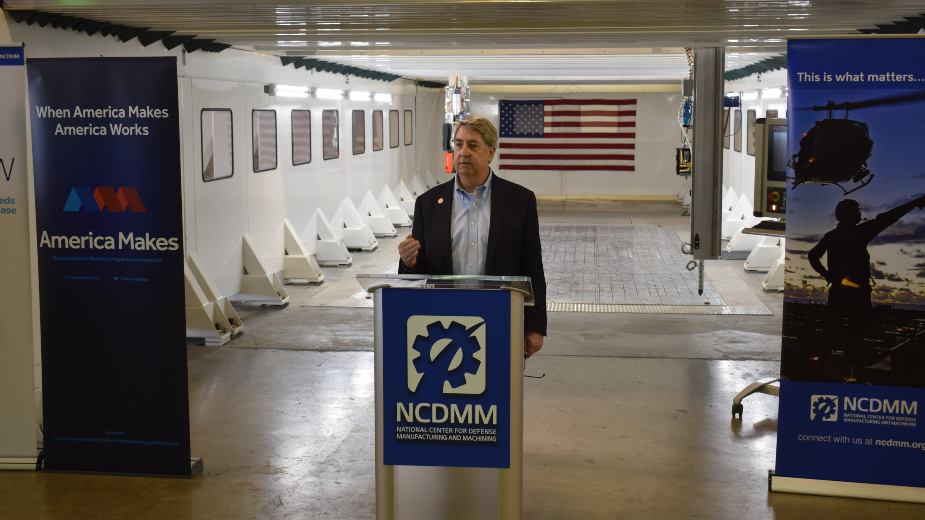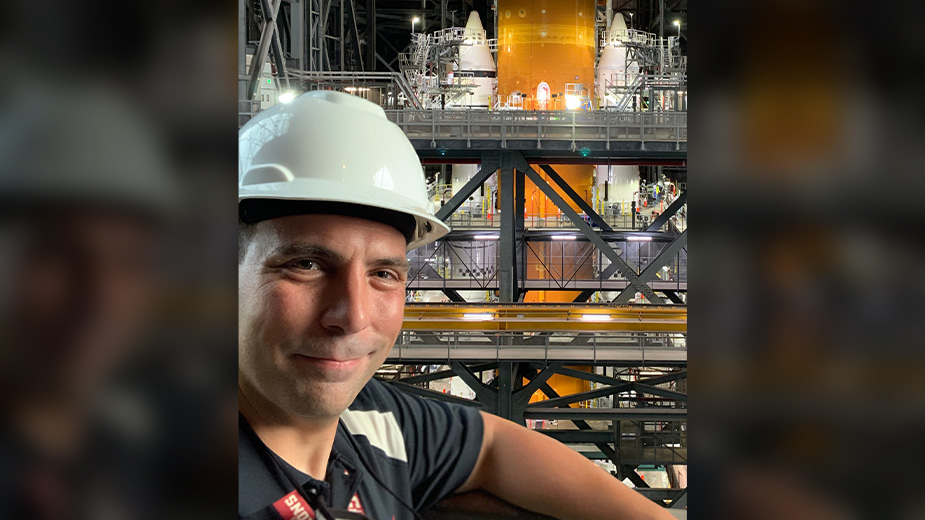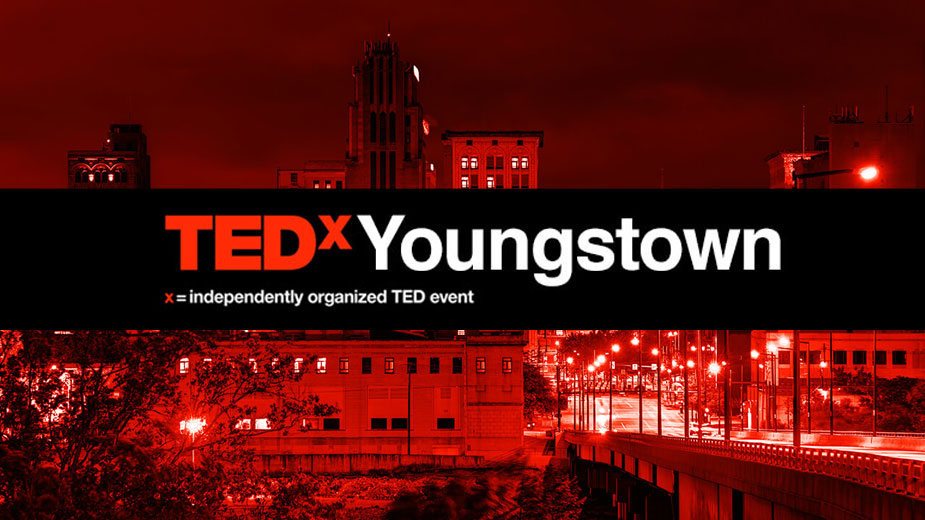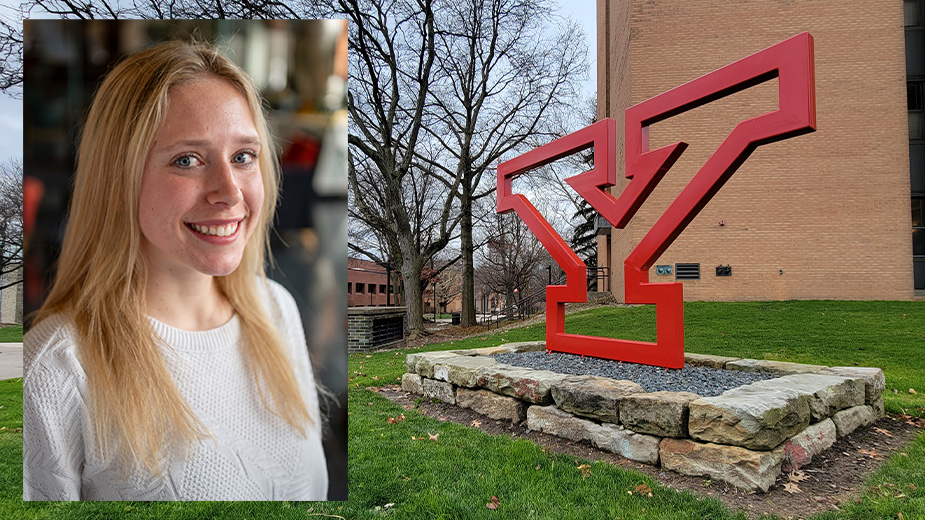AM Supply Chain Boosts Workforce, Entrepreneurs
YOUNGSTOWN, Ohio — When Alex Fitzgerald first laid eyes on the massive 3D printer at Center Street Technologies – large enough to enclose a Ford F-150 pickup truck – moving back to Youngstown to work was a no-brainer.
“Once I saw it, I couldn’t say no to it. It’s amazing,” Fitzgerald says.
After graduating from Youngstown State University in 2018, Fitzgerald took a job as a project engineer for ExOne, a provider of industrial 3D printers and services based in St. Clairsville. It was a natural first step, he says, because he had worked with some ExOne systems while studying additive manufacturing at YSU.
Last February, Mike Garvey, president of M7 Technologies in Youngstown, invited Fitzgerald to visit Center Street Technologies on Ohio Works Drive to see the printer that can handle builds of up to 60,000 pounds. Fitzgerald jumped at the opportunity to work for Center Street, he says, and is now its additive- manufacturing engineer.
“I just wanted to be back home. It’s a great place to be,” Fitzgerald says.
A year before he graduated, he didn’t think there would be many local jobs available, he admits. After doing some research, he found “there’s actually a ton of opportunities for students graduating,” particularly in additive design, materials and research.
The printer at Center Street Technologies is “a great representation of the Youngstown ecosystem,” he adds. Several area companies were involved in its development, including M7 Technologies with its machining capabilities and Strangpresse, which provided a background in extrusion. After two years of research, design and execution, the large-scale printer is now complete and will be at the center of the second phase of the AMNOW project, which is assisting the U.S. Army in transitioning to additive manufacturing technology in its supply chain. AMNOW recently received $30 million in federal funding.
The $30 million investment – secured by U.S. Reps. Ryan, D-13 Ohio, and Mike Doyle, D-18 Pa. – will provide opportunities for new companies to get involved with establishing the additive-manufacturing supply chain; companies like DN Controls in Erie, Pa., which helped to get the massive Center Street 3D printer operating.
DN works closely with M7 Technologies, Center Street and the Youngstown-based America Makes, says its owner, Kyle Starr. With investments such as the one into the AMNOW program, Starr expects the working relationship with America Makes to be a long one and will provide new opportunities for his company to expand.
“We’re looking forward to continuing possibilities and bringing some of our experience from the heavy-machining industry into the 3D printing world so we can get the best out of these machines that you need to produce the accuracy for real-world components,” Starr says.
Through the AMNOW program, America Makes will work with the Army to research its needs in the additive-manufacturing supply chain, then gauge the capability of manufacturers in the Mahoning Valley to meet those needs, says John Wilczynski, executive director of America Makes.
The project isn’t along the lines of the research and development activity that America Makes typically does, Wilczynski says. It’s about supply-chain development and “ultimately, it will yield real components for the Department of Defense,” he says.
“So what kind of manufacturers, designers, materials companies, those kind of folks, do we need in place such that we’re able to step up when called upon?” Wilczynski asks. “We’re trying to make sure this region – before anyone else is able to in the country – is well-positioned to answer the call of this specific opportunity.”
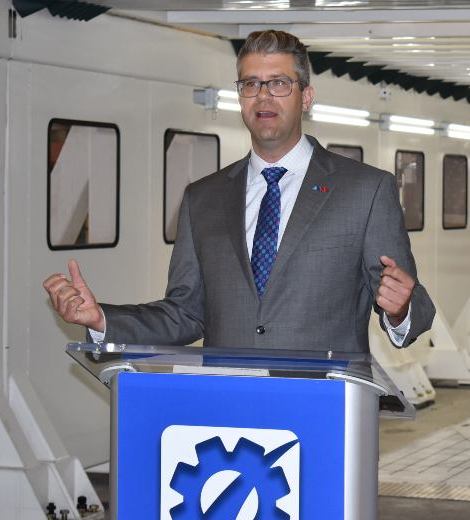
Already the region has “great activity” and capabilities with the Youngstown Business Incubator, YSU, America Makes and other startup companies, he says. “But there’s gaps that exist between the need and the capability,” he notes – gaps that the program will identify and close through strategic and specific action.
Such action includes education and workforce development, as well as introducing the technology to area manufacturers “who aren’t aware that it exists or don’t understand where they fit in,” Wilczynski says.
By doing so, it will position area manufacturers to be able to answer the call from the Army, as well as other branches of the military and industries, including automotive and aerospace.
The project is “absolutely dialing in” on the industrialization of additive manufacturing in the region, which means moving beyond producing small parts, says Mark Lamoncha, president and CEO of Humtown Products, which operates in Columbiana and Leetonia. In addition to encouraging existing businesses to expand, it attracts more startups to the region, thereby providing incentives to students to study and work at home and “gets them to want to stay here,” he says.
“It gives us the opportunity to make this whole Mahoning Valley echo across the country that this is the place to do business with additive manufacturing in the industrialized market,” Lamoncha says.
The impact of AMNOW on the workforce in the region and its entrepreneurial ecosystem will be twofold, says Mike Garvey, president of M7 Technologies. First, it encourages the current manufacturing base to assess itself regarding how prepared companies are to participate in the additive manufacturing supply chain. “It also will be a really good tool for them to do self-assessment on how prepared they are to participate in Industry 4.0,” which pairs manufacturing with the “cyber-physical space.
“Because of this, it’s going to attract entrepreneurs that want to participate in supply chain activities in a specific area,” Garvey says. “Controls. Automation. Things like that.”
Research and development are the new raw materials for the additive manufacturing industry as coke and limestone were to the steel industry, Ryan says, “and that has to be happening in Youngstown.”
Ryan cites the importance of educational institutions such as YSU being at the center of the Tech Belt region in developing the latest and greatest ideas. “And if the great ideas are coming from here, that attracts the investment,” he says. “Everybody in the area of additive manufacturing around the world knows that they need to be in Youngstown, Ohio. That’s what we’ve created here. Now we’ve got to deepen it with this money to get into the supply chain and really get into the job creation aspect of this.”
Moreover, the educational infrastructure serves as an incentive for entrepreneurs, adds America Makes’ Wilczynski. Post-secondary educators such as YSU, regional community colleges and trade schools have introduced the necessary curriculum. “We’re starting to see that trickle down into elementary schools, middle schools and high schools,” he says.
The challenge is ensuring that students being trained in the technology aren’t walking away from the area for better opportunities. The key, Wilczynski says, is to “grow our own, take advantage of what we have and make sure they stay here,” which requires individuals willing to invest.
For entrepreneurs, there is “tremendous opportunity” for anyone who comes up with a new idea and can put in the work to develop it.
“We’re on the absolute verge of this breaking through and becoming something that is much more understood and recognized by the nation at large and across the globe,” Wilczynski says. “And not to make piece parts and trinkets and things that don’t necessarily matter. This is to make real components that we use in everyday life.”
Copyright 2024 The Business Journal, Youngstown, Ohio.
